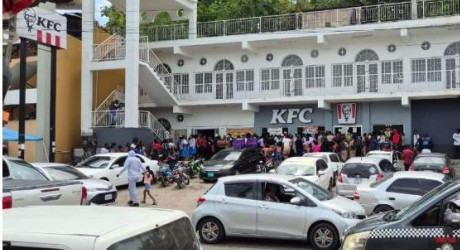General Ratko Mladic, the former Serbian military commander accused of genocide in the bloodiest war fought in Europe since World War II, was arrested Thursday after more than 15 years in hiding, Serbia's president announced.
General Mladic was the highest-ranking war crimes suspect still at large from the Yugoslav wars of the 1990s.
He was detained in Serbia following an investigation that took about three years, Serbian President Boris Tadic said in a dramatic and hastily announced news conference in Belgrade.
He refused to give more details about the operation.
Genral Mladic, 69, is wanted on charges of genocide, extermination and murder, among others, by the International Criminal Tribunal for the former Yugoslavia.
The tribunal accuses him of "direct involvement in the genocide committed after the fall of Srebrenica in July 1995," and the killing of "close to 8,000 men and boys following the fall of this enclave."
The tribunal called the five-day massacre of the Muslim men and boys "the triumph of evil."
The systematic slaughter is thought to be the largest individual mass killing in Europe since the Holocaust.
"Ethnic cleansing,"
General Mladic is charged with "ethnic cleansing," widespread killing, forcible deportations, torture, forced labor, and physical, psychological and sexual violence against Bosnian Muslims in Srebrenica and many other parts of Bosnia between 1992 and 1995.
But he remains a hero to some of his former soldiers, said David Owen, a former European Union envoy to Yugoslavia, suggesting that his supporters had sheltered him in Serbia.
Serbia, once a part of multi-ethnic Yugoslavia, continues to probe "who aided and abetted Mladic... and those people will face justice," President Tadic said.
"All war criminals must face justice," he added.
The president said the arrest will help the process of reconciliation throughout the Balkans.
It should also pave the way for Serbia's entry to the European Union.
"This is an incredibly important day for Serbia," said James Ker-Lindsay, a senior research fellow at the London School of Economics and Political Science.
"Ratko Mladic was the person to get hold of. This totally transforms Serbian prospects for getting into the European Union," Presdint Tadic stated.
Croatian newspaper Jutarnji List was the first to report the arrest of General Mladic, saying that police were doing DNA tests on a suspect to determine if he was the notorious former commander.
General Mladic had been on the run since the war in Bosnia and Herzegovina ended in 1995.
'Village stake-out'
Gen Mladic is due to appear before a Serbian judge later on Thursday.
He was seized in the province of Vojvodina in the early hours of Thursday, Serbian Justice Minister Slobodan Homan told the BBC.
Serbian security sources report that three special units had descended on a house in the village of Lazarevo, about 50 miles north of Belgrade.
The house was owned by a relative of Gen Mladic and had been under surveillance for the past two weeks, one of the sources added.
General Mladic was reportedly using the assumed name Milorad Komodic.
He was the last remaining suspect at large from a triumvirate of Serbian leaders accused of genocide against Muslims and Croats as the three populations fought a brutal war over Yugoslav territory.
Former Yugoslav President Slobodan Milosevic was toppled in 2000 and sent to face charges in The Hague. He died in 2006 while the trial was still going on.
Bosnian Serb leader Radovan Karadzic was arrested in July 2008 and is now on trial in The Hague.
Karadzic was removed from power under the Dayton Peace accords that ended three years of brutal fighting.
He went into hiding, grew a full white beard and long hair, and was working in an alternative medicine clinic in Belgrade, right under the noses of authorities, when he was captured.
Karadzic has insisted on defending himself at The Hague.
Prosecutors accuse him of deliberately obstructing the trial with delaying tactics, and judges have threatened to impose a defense lawyer on him if he does not cooperate.
The 1992-1995 Bosnian war was the longest of the conflicts spawned by the breakup of Yugoslavia in the early 1990s.
Backed by the government of Milosevic, Bosnian Serb forces seized control of more than half the country and launched a campaign against the Muslim and Croat populations.
The United Nations declared Srebrenica to be a safe haven, and tens of thousands of Bosnian Muslims flooded in, expecting protection.
But a small contingent of Dutch United Nations soldiers, lightly armed and aware no reinforcements were coming, stood aside and allowed General Mladic's troops to overrun Srebrenica, leading to the slaughter.
NATO intervened in the conflict, bombing Bosnian Serb military positions. The United States brought the leaders of the warring factions to an agreement in Dayton, Ohio, in 1995, bringing the violence to an end.
(Source: CNN & The BBC)









 All feeds
All feeds







